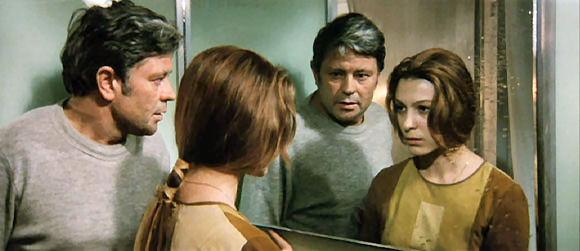I recently finished Stanley Cavell’s 1971 book of film philosophy, “The World Viewed” (with a long addendum from 1979.)
The book is a mixed bag. Many of Cavell’s readings are thoughtful and sharp. On the other hand his take on one film I know well, “Rosemary’s Baby,” is so misguided as to be actually offensive. (He claims that the film is about Rosemary’s husband’s impotence rather than about Rosemary’s rape, and then muses on the exact nature of Rosemary’s sin, which he determines has something to do with the fact that “Rosemary does not allow her husband to penetrate her dreams, allow him to be her devil, and give him his due.” Which I suppose is a roundabout way of saying that her sin is that she was insufficiently accommodating and so her husband had to rape her, or let the devil do it for him. Cavell also seems to believe that the movie is about motherhood, when it’s rather clearly about pregnancy. His inability to tell the difference is of a piece with a consistent incapacity to imagine that somewhere, somehow, the audience for some movie or other might include women. In any case, when you are more misogynist than Roman Polanski, you are in serious trouble. )
Where was I?
Oh right.
So some downsides. But on the other hand there’s lots of interesting theoretical material. Cavell’s book is fascinated with the relationship between film and reality. For him, the most salient fact about film is the manner in which it technologically, automatically, produces a reproduction or an image of the world that is neither a reproduction nor an image. Film is the world itself, though a world from which we (the audience) are exiled; we can watch but not interfere. Cavell therefore sees film as directly confronting Western philosophical skepticism — the Cartesian fear that we’re trapped in our minds with no way to perceive or access reality — or, indeed, the fear that our minds are all there is, and there is no reality to access. The loss of objective reality is also the death of God, and in embodying that absence, film replaces religion.

